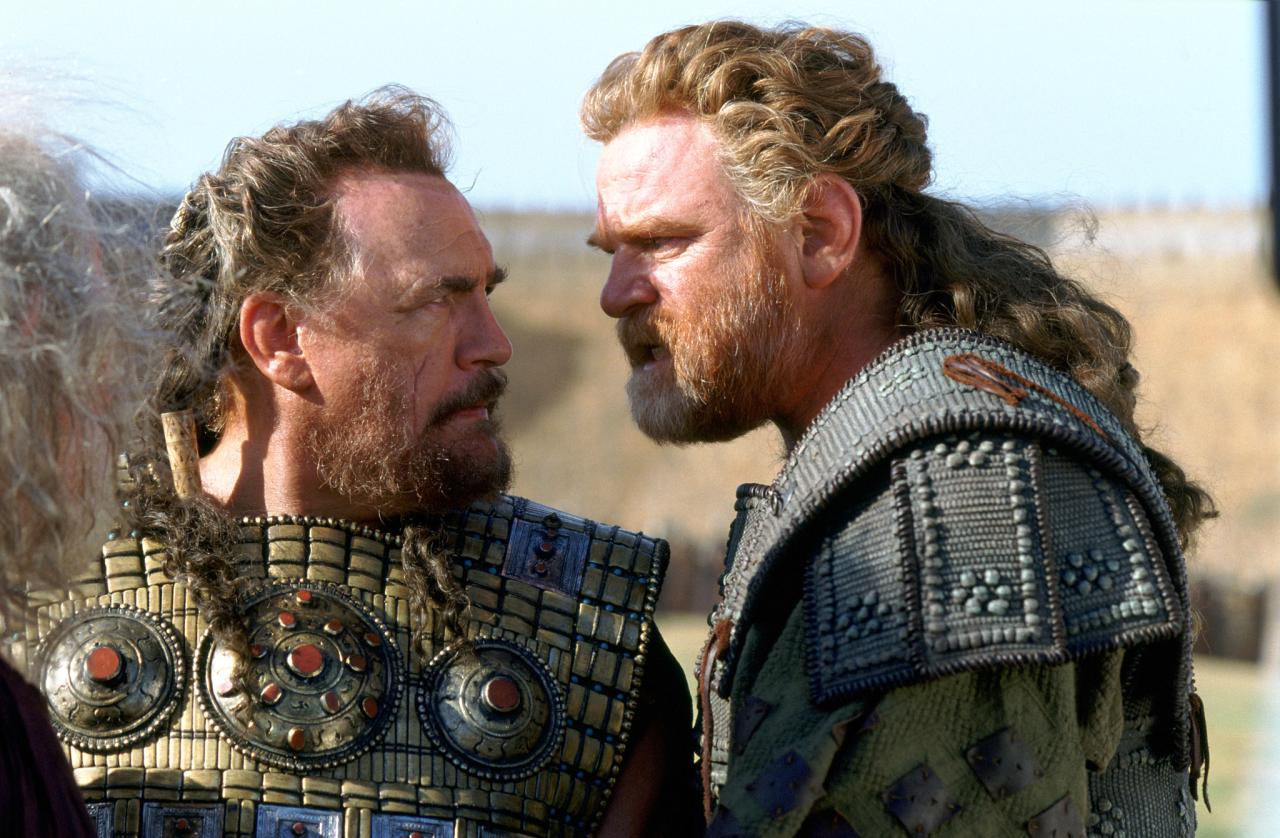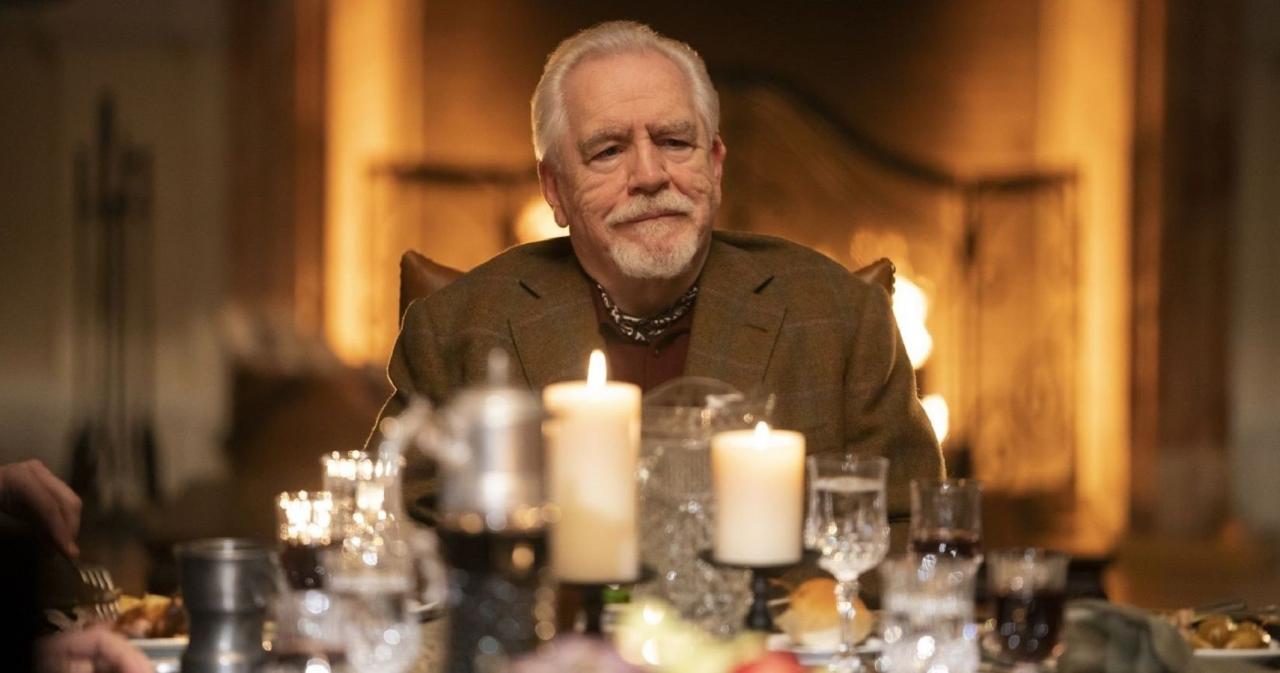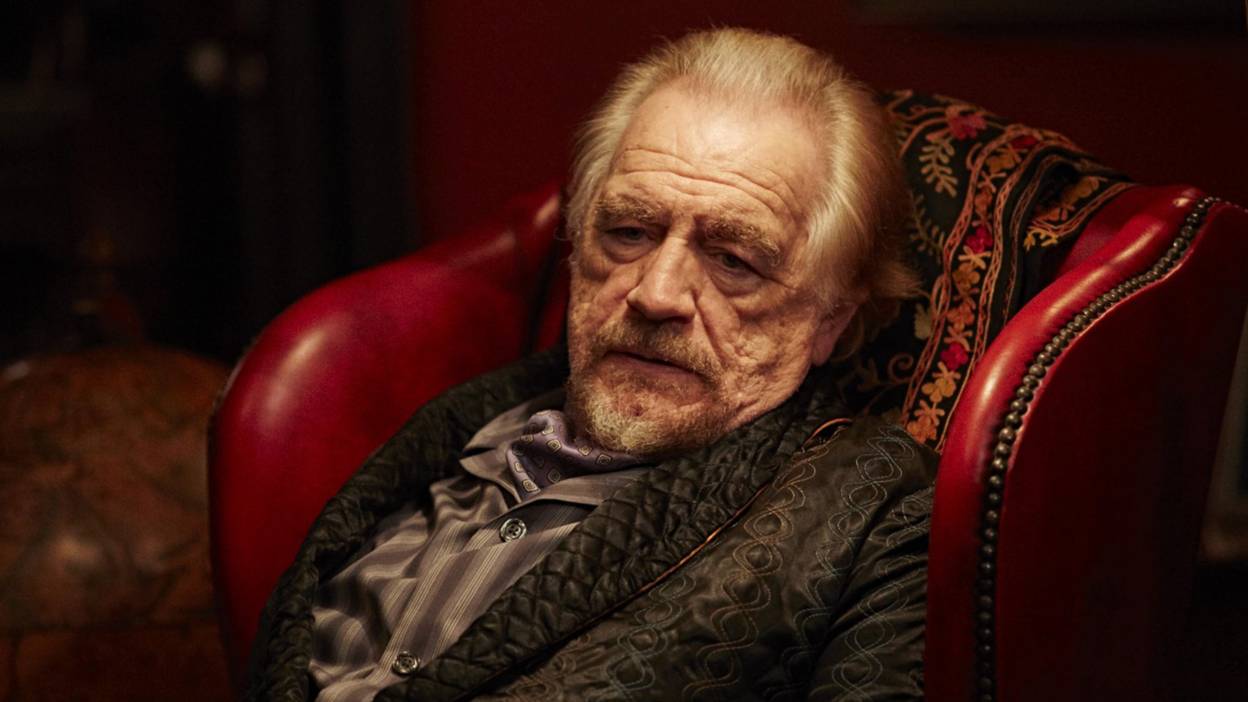Brian cox movies and tv shows – Prepare for an enthralling exploration into the world of Brian Cox’s movies and TV shows. From his humble beginnings to his critically acclaimed performances, this article delves into the remarkable career of a true acting legend.
With his captivating presence and undeniable talent, Brian Cox has graced both the big and small screens, leaving an indelible mark on the entertainment industry. Join us as we unravel the complexities of his craft, examining his collaborations with renowned directors and his masterful stage and screen performances.
Brian Cox’s Early Life and Career
Brian Denis Cox CBE is a Scottish actor. He has appeared in over 200 films and television shows, including the Bourne franchise, X-Men: First Class, and Succession. Cox has received numerous awards for his work, including a Golden Globe Award and two Primetime Emmy Awards.
Cox was born in Dundee, Scotland, on June 1, 1946. He attended the Royal Scottish Academy of Music and Drama, and began his acting career in the early 1970s. He appeared in a number of small roles in film and television before landing his breakthrough role in the 1986 film Manhunter.
Cox’s performance as Hannibal Lecter in Manhunter earned him critical acclaim and helped to launch his career.
Early Acting Roles, Brian cox movies and tv shows
Cox’s early acting roles were primarily in theater and television. He appeared in a number of productions at the Royal Court Theatre in London, including the world premiere of David Hare’s play Plenty. Cox also appeared in a number of television shows, including the BBC series The Professionals and the ITV series The Bill.
Cox’s early acting roles helped him to develop his craft and to establish himself as a versatile actor. He was able to play a wide range of roles, from villains to heroes, and he was always able to bring a sense of realism and authenticity to his performances.
Breakthrough Roles and Notable Performances
Brian Cox’s breakthrough role came in the 1995 film Braveheart, in which he played the role of Robert the Bruce, the King of Scotland. His performance was critically acclaimed, earning him an Academy Award nomination for Best Supporting Actor. Cox’s performance in Braveheartshowcased his range as an actor, as he was able to portray both the strength and vulnerability of his character.
Notable Performances
Since Braveheart, Cox has continued to give notable performances in a wide range of films and television shows. Some of his most iconic roles include:
- Hannibal Lecter in Manhunter(1986) : Cox’s portrayal of the cannibalistic serial killer was both chilling and mesmerizing, and helped to establish him as one of the most iconic villains in cinema history.
- Winston Churchill in Churchill(2017) : Cox’s performance as the British Prime Minister during World War II was both nuanced and powerful, and earned him a Golden Globe Award for Best Actor.
- Logan Roy in Succession(2018-present) : Cox’s portrayal of the ruthless and manipulative patriarch of a media empire has been widely praised, and has earned him two Primetime Emmy Awards for Outstanding Lead Actor in a Drama Series.
Cox’s performances in these roles have demonstrated his versatility as an actor, as he has been able to portray a wide range of characters with equal skill. He is one of the most respected actors working today, and his work has had a significant impact on the industry.
Collaboration with Renowned Directors
Brian Cox has had the privilege of collaborating with some of the most celebrated directors in the film industry. These collaborations have played a significant role in shaping his career and artistic development.
- Michael Mann:Cox’s collaboration with Mann in the film “Manhunter” (1986) marked a turning point in his career. Mann’s meticulous attention to detail and exploration of psychological depth influenced Cox’s approach to character portrayal.
- Paul Thomas Anderson:Cox’s performance in Anderson’s “There Will Be Blood” (2007) earned him an Academy Award nomination. Anderson’s unconventional storytelling and evocative imagery challenged Cox to create a nuanced and unforgettable character.
- Wes Anderson:Cox’s quirky and deadpan delivery in Wes Anderson’s “The Grand Budapest Hotel” (2014) showcased his versatility. Anderson’s whimsical and stylized world provided a perfect platform for Cox’s comedic talents.
- Darren Aronofsky:Cox’s portrayal of Noah in Aronofsky’s “Noah” (2014) required him to delve into complex theological and existential themes. Aronofsky’s ambitious vision pushed Cox to explore the depths of human nature.
- Barry Levinson:Cox’s collaboration with Levinson in “Bugsy” (1991) and “Sleepers” (1996) showcased his ability to play both charismatic and morally ambiguous characters. Levinson’s focus on character development allowed Cox to create memorable and complex performances.
These collaborations have not only enriched Cox’s filmography but have also expanded his artistic range. By working with these visionary directors, Cox has honed his craft, embraced new challenges, and cemented his status as one of the most respected actors of his generation.
Stage and Screen Presence
Brian Cox is an accomplished actor who has excelled on both stage and screen. His performances are characterized by their depth, intensity, and authenticity.Cox’s stage presence is captivating. He commands the stage with his powerful voice and commanding presence. He is able to inhabit his characters fully, bringing them to life with a visceral intensity.
His performances are often characterized by their emotional honesty and psychological realism.Cox’s film work is equally impressive. He has appeared in a wide range of films, from independent dramas to big-budget blockbusters. He is able to adapt his acting style to suit the demands of each role, but he always brings a level of intensity and commitment to his performances.One of the key differences between stage and screen acting is the level of intimacy.
In theater, the actor is performing in front of a live audience, which creates a sense of immediacy and connection. In film, the actor is performing in front of a camera, which can create a sense of distance. Cox is able to bridge this gap by creating performances that are both intimate and emotionally resonant.Another key difference between stage and screen acting is the use of the voice.
In theater, the actor’s voice must be strong enough to project to the back of the house. In film, the actor’s voice can be more subtle, as it will be amplified by the microphone. Cox is able to use his voice to create a wide range of effects, from powerful speeches to intimate whispers.Cox is a master of both stage and screen acting.
He is able to adapt his acting style to suit the demands of each medium, but he always brings a level of intensity and commitment to his performances.
Character Development and Portrayal
Cox is known for his ability to develop and portray complex and challenging characters. He is able to find the humanity in even the most flawed characters, and he is not afraid to explore the dark side of human nature.Cox’s approach to character development is based on a deep understanding of human psychology.
He spends time researching his characters and getting to know their motivations and desires. He also works closely with directors and other actors to create a collaborative environment in which he can explore his characters in depth.Cox’s performances are often characterized by their emotional honesty and psychological realism.
He is able to bring his characters to life with a visceral intensity that is both captivating and unsettling. He is not afraid to take risks, and he is always willing to push himself to the limit in order to create a truly memorable performance.
Unique Challenges and Opportunities
Stage and screen acting present different challenges and opportunities for actors. On stage, actors must be able to project their voices and create a strong connection with the audience. They must also be able to sustain their energy levels for long periods of time.In film, actors must be able to work with a camera and a microphone.
They must also be able to adapt their performances to the demands of the editing process.Cox is able to overcome the challenges of both stage and screen acting. He is a versatile actor who is able to adapt his acting style to suit the demands of each medium.
He is also a dedicated and hard-working actor who is always willing to go the extra mile to create a truly memorable performance.
Awards and Recognition
Brian Cox has garnered numerous awards and nominations throughout his illustrious career, solidifying his status as one of the most celebrated actors of our time. These accolades not only attest to his exceptional talent but have also significantly influenced his career trajectory.
Accolades and Their Significance
Cox has been the recipient of various prestigious awards, including:
- Academy Awardfor Best Actor (2003, for The Hours)
- Golden Globe Awardfor Best Actor – Television Series Drama (2019, for Succession)
- Primetime Emmy Awardfor Outstanding Lead Actor in a Drama Series (2022, for Succession)
- BAFTA TV Awardfor Best Actor (2019, for Succession)
- Tony Awardfor Best Actor in a Play (1999, for Art)
These awards have not only brought him international acclaim but have also solidified his reputation as a versatile and nuanced performer. His Oscar win for The Hoursmarked a significant milestone in his career, propelling him to new heights of recognition.
Reasons for Critical Acclaim
Cox’s critical acclaim stems from his ability to portray complex and often unlikable characters with depth and authenticity. He brings a raw intensity to his performances, capturing the inner turmoil and contradictions of his subjects. His exceptional range allows him to effortlessly transition between comedic and dramatic roles, showcasing his versatility and adaptability.Cox’s unwavering commitment to his craft is evident in his meticulous preparation and attention to detail.
He immerses himself in the characters he plays, drawing inspiration from real-life experiences and observations. His dedication to authenticity has earned him widespread respect and admiration from both critics and audiences alike.
Personal Life and Legacy
Brian Cox is a private person who values his family and personal time. He has been married twice, first to Caroline Burt and then to Nicole Ansari. He has five children, including actor Brian Cox Jr. Cox is a keen supporter of Scottish independence and has spoken out in favor of the country’s right to self-determination.
He is also a patron of the Scottish Youth Theatre and the Royal Conservatoire of Scotland.
Philanthropy and Social Causes
Cox is a passionate advocate for social justice and has supported various charitable organizations throughout his career. He is a patron of the Scottish Association for Mental Health and has worked to raise awareness of mental health issues. Cox is also a supporter of the homeless charity Shelter and has helped to raise funds for the organization.
Conclusive Thoughts
As we conclude our exploration of Brian Cox’s illustrious career, it becomes evident that his legacy extends far beyond the accolades and awards he has received. His dedication to his craft and his ability to embody a vast range of characters have cemented his place among the greatest actors of our time.
Brian Cox’s movies and TV shows will continue to captivate audiences for generations to come, inspiring and entertaining with their depth, nuance, and sheer brilliance.
Quick FAQs: Brian Cox Movies And Tv Shows
What are some of Brian Cox’s most iconic roles?
Brian Cox has delivered numerous iconic performances, including his portrayal of Hannibal Lecter in the TV series “Hannibal,” Logan Roy in “Succession,” and Winston Churchill in “Churchill.”
What is Brian Cox’s acting style?
Brian Cox is known for his intense and charismatic acting style, often portraying complex and morally ambiguous characters with depth and nuance.
What awards has Brian Cox won?
Brian Cox has won numerous awards for his work, including two Golden Globes, an Emmy Award, and a BAFTA Award.


